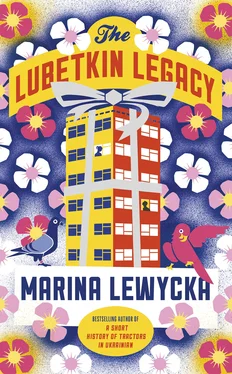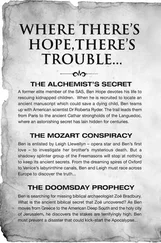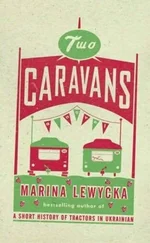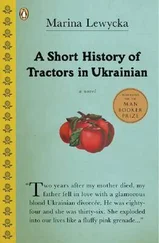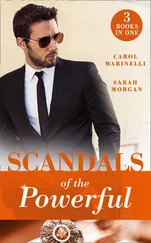‘Silly boy,’ she whispered into his ear.
The prick of annoyance I felt was soon overtaken by curiosity. The bike the mutt had been hanging from had a familiar look. I pulled it clear of the undergrowth. Beneath a coating of mud on the frame I could make out the letters Cu … I rubbed at the mud with my fingers revealing … be . Red with white trim and a scratched-off patch on the crossbar where I had painted my initials. Eleven gears. But only one wheel. The front wheel, by which I had chained it to the Oxfam shop sign on the pavement, was missing. Come to think of it, I recalled that when I had discovered it was missing, just after my embarrassing Oxfam encounter with Mrs Penny (as I knew her then), the shop sign was missing too.
‘I think it’s my bike. It was stolen outside Oxfam that day. Remember?’
She blushed, or maybe it was just the wind reddening her cheeks. ‘I think we can get it in the car, if you don’t mind having Monty on your lap on the way home.’
We retraced our steps to the car park. She lowered the back seats and between us we managed to heave the muddy damaged bike into the shiny little red car. Its front forks were bent, the handlebars were twisted around and its loose chain sagged pathetically on to the spick and span upholstery. It reminded me of something else that had sagged pathetically … well, never mind. All’s well that ends well.
‘There!’ Stacey patted my arm. ‘Let’s walk down to the lake now. There’s a nice little café down there. When I was a kid, I used to come here on a Sunday with Mum and Dad and my little brother.’ A melancholy shadow slid over her face.
I squeezed her hand. ‘Tell me.’
‘That was before my parents split up. Before Dad walked out. So long ago.’ She sighed. ‘We used to bring a picnic, hire a pedalo, and go off into the middle of the lake. We fed the sandwich crusts to the ducks and then there were Jaffa Cakes and tea out of a Thermos. That was the last time I can remember being really happy.’
Stacey clung on to my arm as she wobbled on her heels over a bump in the path. At the edge of the lake, Monty was barking dementedly at a white swan pedalo gliding along a few yards from the shore with a bunch of kids drinking out of cans and letting off party-poppers.
Suddenly a memory came crashing in on me: the absolute darkness, the fathomless water, the rope tightening around my middle as I dangled from a bridge in Hackney or Islington — I couldn’t remember exactly where — above the white swan pedalo. Nige and Howard had found or stolen it somewhere and decided to bring it closer to home and keep it hidden under the bridge to use for fishing, and to impress their friends. I remembered their reedy excited voices as they hatched their plan. I remembered the voice of the policeman on the pavement above, interrogating them about the stolen pedalo; I remembered their squeaky emphatic denial of any knowledge of it whatsoever, no sir, it wasn’t us. And I remembered the splash as Howard, or maybe it was Nige, let go of the rope.
Although there was not much of a current on the canal, the white swan had drifted away so it was no longer directly beneath me when I fell. It had floated into the entrance of a tunnel where the canal went underground. Of course I couldn’t swim, and as I floundered desperately towards it, it drifted away on the ripples I made with my splashing, the faint light gleaming on its puffed-out wings like a will-o’-the-wisp luring me into the darkness. I remembered the foul taste of the water gurgling through my mouth, my throat and lungs soggy with it, something slimy stuck to my tongue as I gasped for air. I remembered total blackness; whether inside me or outside I could no longer tell.
I had no recollection of how I was rescued, but I remembered throwing up wretchedly on the towpath, and Howard coaching me as we walked home, soaking wet and shivering, through the dusk.
‘So when Dad asks what happened, you’re going to say you fell off a bridge, right? What are you going to say?’
‘I fell off a b-b-bridge.’
Stacey slipped her hand into mine. ‘Oh, you poor pet! That sounds terrifying!’ She frowned. ‘I wonder where they got the swan. Maybe it came from here. They find them every winter, you know, abandoned in the bushes or even dumped on the River Lea.’
‘But how did they get it to Islington?’
‘There are secret waterways all over London. Probably full of dead bodies.’ She squeezed my arm. ‘Were you scared, Bertie?’
‘Mm. As scared as I’ve ever been.’ I was shivering uncontrollably now.
Stacey held me tight. ‘Let’s go and get a cup of tea.’
‘I’d rather …’
I surrendered. I let her lead me to a small round table and order a pot of tea for two.
‘I’ll be mother.’ She poured the milk in first, from a small china jug, and then added the tea. ‘Say when.’
I gulped the warm tasteless liquid and as it trickled down inside me I felt the twist of cold and fear unwind.
Mother, I recalled, had offered me tea too, and interceded with Sid to let me warm up a bit before he thrashed me. Thwack! I didn’t tell him about Howard and Nige and the white swan pedalo. There was no point in getting thrashed twice — first by Dad and then by them for telling tales.
‘I fell off a b-b-bridge.’
Mother said that was the first time she ever heard me stammer.
With so much to keep her busy since she started her new job, and determined to make a success of it, Violet has put her inquiries about Horace Nzangu on to the back-burner. But today is Friday, and she has invited Lynette to join her for a coffee at the Bulbul at four o’clock. Lynette is the eldest daughter of her mother’s second brother, her favourite cousin and the nearest she has to a sister. She is a teacher, a couple of years older than her, married to a civil engineer called Archie; they have three small children, and she has only just returned to work. Lynette is round-cheeked, slim and wiry, like all the cousins, and today she is wearing a white cotton dress with small pink and green candy-stripes and narrow shoulder straps.
‘ Haqbari ya leo! ’ They hug and laugh, pleased as always to see each other, and gossip for a while about family news.
She tells Lynette about the projects she has visited for her job, and mentions that she came across some big-time corruption in Kenya in her previous London job that could have some bearing on how their Babu Josaphat died.
‘Violet, why you can’t leave that dirty history alone?’ Lynette wrinkles her nose. ‘All that corruption belongs in the time of Baba Moi.’ That is the nickname of ex-President Daniel Arap Moi. ‘It is out of date. Archie says if people always think of corruption when they think of Kenya, it’ll put them off investment.’
‘But Lynette, sometimes it’s the investment that brings the corruption.’
‘Since your British have started poking their clean white noses into corruption, our Government has just cosied up more with the Chinese, who don’t give a fly what anybody does. That’s what everybody says.’
‘Lynette, have you heard of the name Horace Nzangu?’
She takes the four GRM photocopies out of their brown envelope and spreads them on the table. Lynette glances at them.
‘Nzangu? Hm. I think he’s some big bwana in the Health Ministry, married to a cousin of Baba Moi. So what? He’s corrupt? Tell me something new.’ She fakes a big yawn, covering her mouth with her hand. ‘No one can touch him. That man put all his relatives in positions where they could get rich. He bled the country for twenty-four years, and we’re still bleeding. Nothing we can do, little cousin. All the money is in Europe now. Better to burn those papers and pretend you never seen them.’
Читать дальше
